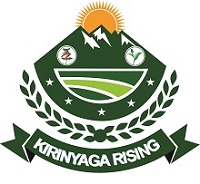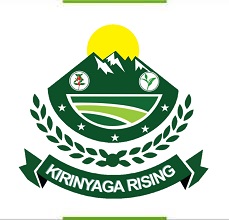County Government establishes homecraft centers in youth polytechnics
The County Government of Kirinyaga has established homecraft centers in selected youth polytechnics to assist community members acquire skills for self-employment. The centers offer skills in areas such as beadwork, weaving, soap making, leather work, knitting and clothes making and there are no prerequisite academic qualifications for anyone to join.
During an exhibition held at Kamiigua Youth Polytechnic on Thursday, different trainees showcased their handmade products such as door mats, knitwear, weaved lesos commonly referred as kikois, beadwork products such as flower vases, pen holders, serviette holders as well as leather sandals, clothes and bags.
The polytechnics that have established homecraft centers are Kamiigua, Kimweas, Kibingoti, Nyangati, Kiamikuyu, Kiambatha, Ngucui and Mutitu. Governor Anne Waiguru has said that her government has been providing the required tools and equipment to enable smooth running of the program, thus trainees are not required to pay for the homecraft courses. She added that her government is committed to offering sustained quality and inclusive training that will produce appropriate skilled artisans and craftsmen. “The polytechnics impart marketable skills and technical know-how that will enable graduates to fit into contemporary labor markets especially in the informal sector and also prepares them for self-employment.
Terrence Njiru, the Principal Kamiigua Polytechnic says that the advantage of enrolling for homecraft courses is that they are tailor-made to fit into the time schedules of trainees and they are not limited to any age. He noted that enrolling for a homecraft course also lays foundation for people who would like to pursue higher grade levels. He said that the homecraft center at Kamiigua was introduced to fill the skills gaps that have been hindering members of the surrounding community from engaging in productive income generating activities. He noted that homecraft contributes towards rural poverty eradication especially nowadays when job opportunities are diminishing. “The initiative is also a step towards the realization of the manufacturing pillar of the Big Four Agenda whereby the local people can make some of the products that are currently imported.”
The homecraft program in the county has so far benefitted 1,100 students while 70 instructors have also been trained on how to conduct the program. Out of the beneficiaries of the program that have already graduated and certified have opened their own businesses using the skills they gained at the centers.
Eunice Wairimu Maina is such a beneficiary. After successfully undertaking a sewing course at Kamiigua polytechnic and getting certification, she’s now running her own business in Kerugoya town where she earns money for her family’s upkeep. She said that besides being self-employed and employing other women in her business, she has been mentoring other apprentice tailors and imparting them with the skills she gained. Eunice encourages other women to enroll for homecraft courses in order to gain skills that will enable them employ themselves. She noted that the courses are very flexible and hence it is easy to attend and still have time for other family chores.
Johnson Maina who is currently a mechanic trainee at Kiambwe polytechnic is undertaking homecraft training in beadwork alongside mechanic so as to maximally utilize his time at the polytechnic. He says that he aims at getting extra coin from the bead products he makes through selling them to car owners among other customers. “When I am repairing someone’s car, I will have an opportunity to market and sell to them some of my bead products such as serviette holders and other car accessories,” said the 20 year old youth, advising fellow young men to join polytechnics where they can gain technical skills that will increase their employability or enable them start their own businesses.
Other beneficiaries have been making money after selling products such as door mats, sweaters, dresses, leather shoes and bags. Other than the homecraft centers, the mainstream courses offered at the polytechnics include motor vehicle mechanics, electrical installation, masonry, garment making, hairdressing and beauty, carpentry and joinery, metal work and fabrication. Computers and ICT short courses are also offered at the polytechnics. Graduates of youth polytechnics can be employed in the hospitality sector, the fast growing hair and beauty industry, furniture making industry, construction industry, clothes and textile industry as well as interior designing industry among others.



